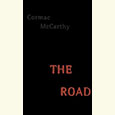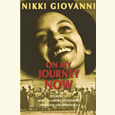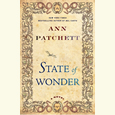The Vernacular of Beyond
Author and naturalist Janisse Ray advocates for wildness
Georgia author, naturalist, activist, teacher, and farmer Janisse Ray has a particular gift for conveying the paradoxical tensions that occur naturally within healthy ecosystems: destruction and regeneration, death and birth. Likewise, she pays respectful attention to these potent tensions and cycles within the lives of her human subjects, including herself.

Time and again, Ray’s ventures into the nonhuman world yield gifts of spiritual immersion and expansion. While the view from our human-made world is often “skewed, as through fractile glass, limited by apertures of scope and angle and crack,” the wild world offers us a new way to perceive life, one in which “relationship is evolutionary, time is geologic, beauty is intelligent.”
Ray’s exploration of wildness — in the land and in the self — is the focal point of her most recent nonfiction book, 2021’s Wild Spectacle: Seeking Wonders in a World Beyond Humans. This collection of essays describes years of travel in the natural world. Fueling Ray’s dedication to experience these wild places is her “longing to experience our landscapes deeply and grandly — as dwellers, as eaters, as seekers, as learners, and especially as passers-through, because in the grandest scheme we are all visitors, just visiting this planet, death the trackless wilderness to be explored.”
In October, Ray will bring her insights about these subjects to Murfreesboro as the keynote speaker at the annual MSTU Write Conference. This year’s conference theme, “Wild | Home: Writing What Roots and Frees Us,” could double as a way to describe Ray’s body of work.
Ray’s debut book, Ecology of a Cracker Childhood, established her literary voice. First published in 1999, this extraordinary work has become a hallmark literary reference point for its hybrid mingling of memoir and nature writing, especially rare in Southern literary writing until then. In Ecology, Ray describes her upbringing in South Georgia’s coastal plains, where she lived amid a vast junkyard collected by her hyper-religious father. She links her personal family history with the fate of the surrounding ecosystem of longleaf pine forests, including the tumultuous aspects of both.
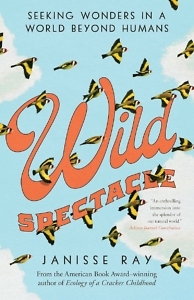 More than a dozen books have followed Ecology, each reflecting Ray’s fusion of literary skill and environmental advocacy. Ray’s work shares a kinship with other literary nonfiction writers like Margaret Renkl, Robin Wall Kimmerer, John McPhee, and Terry Tempest Williams, whose relationships with nature drive innovations on the page.
More than a dozen books have followed Ecology, each reflecting Ray’s fusion of literary skill and environmental advocacy. Ray’s work shares a kinship with other literary nonfiction writers like Margaret Renkl, Robin Wall Kimmerer, John McPhee, and Terry Tempest Williams, whose relationships with nature drive innovations on the page.
For her work, Ray has won the American Book Award, Green Prize for Sustainable Literature Award, and in 2015 she was inducted into the Georgia Writers Hall of Fame. After years spent elsewhere — notably Montana, where several of Spectacle’s memorable essays are set — Ray returned home to Georgia, where she now runs a small family farm with her husband.
The greatest strength of Ray’s work may be her ability to dramatize immersion in nature. Sensory detail and startling metaphor abound in Ray’s prose. The effect created by her point of view reflects a familiar phenomenon. When we experience potent moments of wonder in nature, often we feel driven to share them but find that the essence of the event remains illusory.
Like Ray, we may search for the right words to describe encounters with wildlife (for her, that includes elk, bears, manatees, monarch butterflies, an endless list of bird species). But within our attempts to tell such stories lies a deeper recognition that what we’ve experienced lies just beyond the limits of our human language. Ray has become a specialist in the vernacular of beyond.
Wild Spectacle’s essays challenge our tamed, manicured images and narratives of what wild places and creatures are really like. For example, “Las Monarcas” describes a trip to Mexico to witness the convergence of enormous numbers of migrating monarch butterflies at a well-known sanctuary. Thanks to extreme weather patterns, Ray’s expectations are upended in intense, sobering ways.
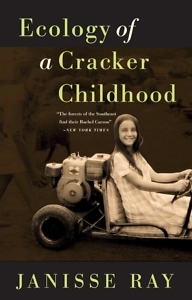 Even so, Ray finds joyful, abundant language to describe the beauty of the monarchs she sees. “The forest filled with fluttering, burning love notes,” Ray writes. The monarchs are “brilliant origami,” “gliding candles,” and “messengers of sun, our only sun.” Her devotion to the wild world’s beauty remains undiminished, even as the threats against our environment tear down our received narratives and assumptions.
Even so, Ray finds joyful, abundant language to describe the beauty of the monarchs she sees. “The forest filled with fluttering, burning love notes,” Ray writes. The monarchs are “brilliant origami,” “gliding candles,” and “messengers of sun, our only sun.” Her devotion to the wild world’s beauty remains undiminished, even as the threats against our environment tear down our received narratives and assumptions.
She reminds us that, throughout our history, humankind has found myriad ways to relate to the natural world. But within that variety, “the instinct is the same, I think, to understand that the earth is wild, and that we are of the earth, and also wild.”
Through works like Wild Spectacle and Ecology of a Cracker Childhood, Ray communicates on the page her profound reverence and understanding of the profuse complexity and interconnectivity within our world’s ecosystems.
By illuminating these wild places for us, Ray does more than advocate for the urgent necessity of conservation and rewilding as bulwarks against climate crisis. She has also become uniquely positioned as an advocate for the astonishment, wonder, and replenishment of the inner world available to us if we can attune ourselves toward the pace and rhythms of the wilder world.

Emily Choate is the fiction editor of Peauxdunque Review and holds an M.F.A. from Sarah Lawrence College. Her fiction and essays have appeared in Mississippi Review, storySouth, Shenandoah, The Florida Review, Rappahannock Review, Atticus Review, Tupelo Quarterly, and elsewhere. She lives near Nashville, where she’s working on a novel.
